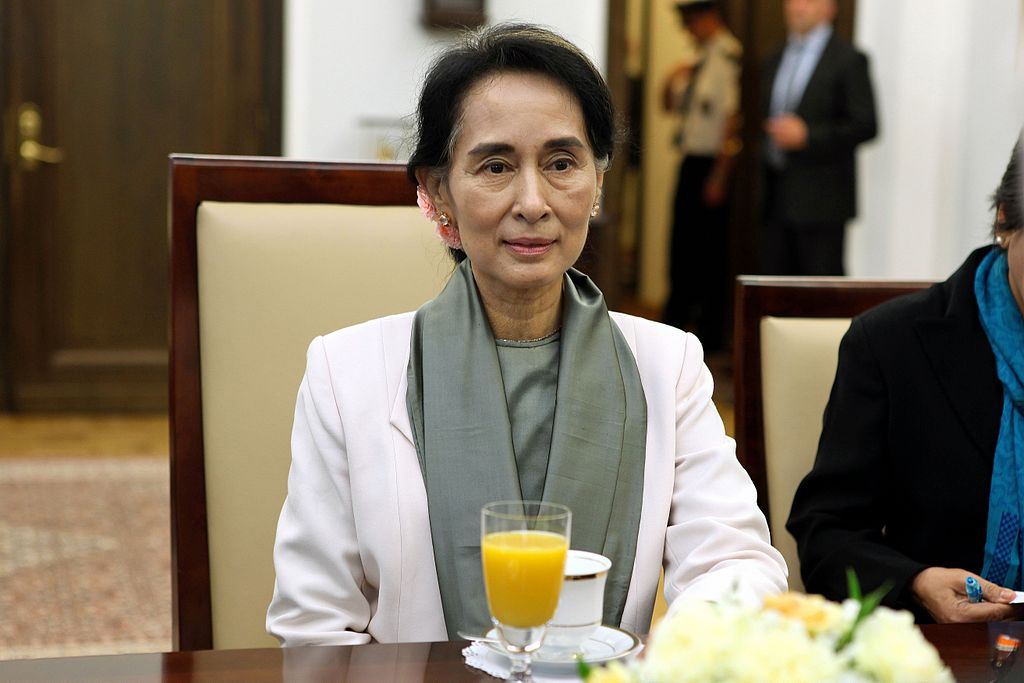Breaking
Obama calls for more progress toward reform in Myanmar, criticizes rule preventing Suu Kyi run

Aung San Suu Kyi. Michał Józefaciuk / Wikimedia Commons
YANGON, Myanmar—President Barack Obama gave a blunt assessment Friday of the need for further reform in Myanmar’s move toward democracy, weighing into sensitive controversies over the treatment of religious minorities and a prohibition keeping opposition leader Aung San Suu Kyi from running for president.
Suu Kyi, released four years ago from more than two decades of confinement, is now a member of Myanmar’s Parliament but is unable to run in next year’s presidential election because of a constitutional rule barring anyone with strong allegiances to a foreign national from standing for the presidency. Suu Kyi’s sons are British, as was her late husband.
“I don’t understand a provision that would bar somebody from running for president because of who their children are,” Obama said, with Suu Kyi by his side. “That doesn’t make much sense to me.”
Obama and Suu Kyi took questions from reporters from the back patio of the house where she spent much of her time under house arrest. The two were warm and affectionate in their interactions, sharing a long embrace after their opening statements and joking with each other throughout their remarks.
Obama has been pressing Myanmar’s leaders to amend the Constitution, but has been careful to not directly endorse his fellow Nobel Peace Prize laureate as the country’s next president.
He also raised an issue that has led to criticism for the opposition icon—her reluctance to address the abuse of minority Rohingya Muslims who are deeply disdained by most people in Myanmar.
“Discrimination against the Rohingya or any other religious minority I think does not express the kind of country that Burma over the long term wants to be,” Obama said. “Ultimately that is destabilizing to a democracy.” Myanmar is also known as Burma.
Obama and Suu Kyi met briefly Thursday on the sidelines of a regional summit in the capital city of Naypyitaw. On Friday, Obama flew to the city of Yangon to hold more substantial talks with Suu Kyi and also toured the Secretariat Building, where Suu Kyi’s father, independence hero Gen. Aung San, was assassinated by political rivals in 1947.
Obama had broadly embraced Myanmar’s move away from a half-century of military rule, suspending U.S. sanctions and rewarding the country with high-level visits from American officials. But Myanmar has stalled in fulfilling its promises of political and economic reforms, and in some cases has lost ground.
“We shouldn’t deny that Burma today is not the same as Burma five years ago,” Obama said. “But the process is still incomplete.”
Both Obama and Suu Kyi warned against complacency in the move toward democracy. Suu Kyi described the process as going through “a bumpy patch.”
Suu Kyi opened the press conference by addressing reports of tension between the U.S. and those working for democratic reforms in Myanmar. “We may view things differently from time to time but that will in no way affect our relationship,” she said.
Obama notably held his news conference on his visit to the Southeast Asian nation with Suu Kyi , not the country’s president. Obama said he told President Thein Sein that he will be judging whether reforms are being fully realized first off by whether next year’s election is held on time and whether the constitutional amendment process reflects inclusion.
Suu Kyi said it’s flattering to have a constitutional provision written with her in mind but it’s not how the law should be written. The 69-year-old said she and her supporters are working to change it and welcome Obama’s support.
“The Constitution says all citizens should be treated as equals and this is discrimination on the grounds of my children,” she said.
Associated Press White House Correspondent Julie Pace contributed to this report.





















